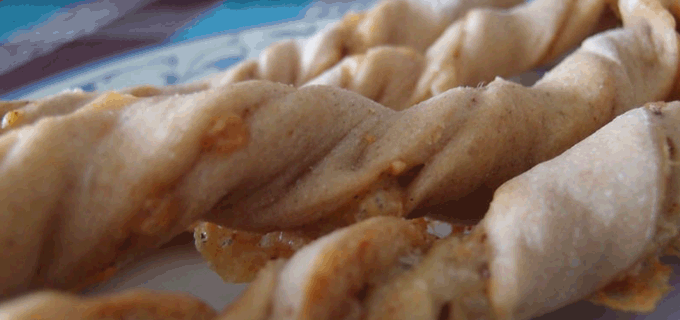Here is an interested food related topic I wanted to found in the web. First I was not sure if I really want to publish it as I at this stage, without having read the book, I can not back up what the author claims in this article (I even would like to express my point of view by saying that I do not believe that most of the Chinese food is simply copied) but it made me interested to buy the book and I was laughing out loud while reading the article about the book so I decided to reprint this article here so you all can have a laugh with me.
------------------------------
If the world’s first gastro-etymologist is to be believed, the majority of China’s beloved culinary creations may well be the 5,000-year-old culture’s oldest surviving knock-offs.
Shanzhai Nation: How China Fed and Misled the World “chronicles one professor’s foray into the deepest and darkest corners of conspiracy and corruption, dating all the back to the Yellow Emperor himself,” according to a book review in The New York Times.
Written and researched by Phillip Nam Ngyuen, a French-born Vietnamese professor of gastronomy, the book was inspired by the rhetorical title of a 2008 TED Talk, “Who is General Tso, and why are we eating his chicken?”
“That got me thinking,” said Nguyen in an interview with China Daily Show. “Who is General Tso? Why are we eating his goddamn chicken? I couldn’t ignore those hard-hitting questions.”
Nguyen’s book begins with China’s well-known historical lack of innovation and creativity, and moves on to expose dish after dish as culinary copycats, each chapter garnished with impressive sources, dates and statistics. From hot pot to hundun, and dumplings to dim sum, no Chinese “creation” is free from Nguyen’s investigative eye.
[seacucumber]
According to Nguyen, sea cucumbers were first introduced to the Chinese during a 1967 state dinner with Klingons
“Everyone knows hot pot comes from 12th-century Mongolia,” said Ngyuen, “but most would be surprised to learn that Kungpao chicken, or in it’s butchered Chinese form, gongbao jiding, is a ripped-off version of Chicken Gumbo, the beloved Cajun dish first masterminded by Bantu-speaking African slaves in Louisiana in 1802, and subsequently copied by a ‘visiting Chinaman of Kwei-chow origin named T’ing P’ow-jun,’ according to police records published in The Picayune in 1842.”
“Roast dog?” Nguyen continued, “Korean. Chuan’r? Persian. Baozi? Hell, baozi was invented by the Germans. Ever heard of the hamburger?”
And as for General Tso’s Chicken?
“That was created by the Oxford-educated Tibetan military scholar, General George Tsozarayim,” said Nguyen. “And we all know that Tibet is—oh, to hell with it, let’s just pretend that General Tso’s chicken is ‘Chinese.’”
Nguyen’s book is currently banned on the Mainland. State agencies remain mum on the veracity of his findings or the implications of widespread historical fraud.
“Five thousand years of history and you can only come up with four fuc*%($ inventions?” said Nguyen. “I think I may have just found the topic of my next book.”
(By MAN MANCHI Culinary Correspondent China Daily Show)











had a laugh indeed...but then not too sure of how reliable are the sources quote from the author either;) it is of course interesting if we could compare notes with different sources for verification.
ReplyDelete@irene: The thing is, I got to read this book. Now the problem is, I won't be able to buy it here ... bummer
ReplyDeleteInteresting read... it's a bit like who "invest" spaghetti and noodle? Chinese or Italian first? ;-)
ReplyDelete